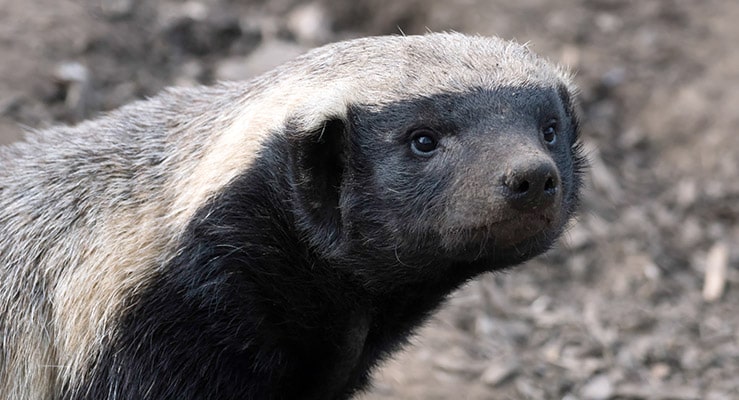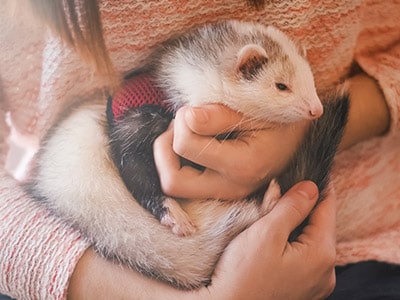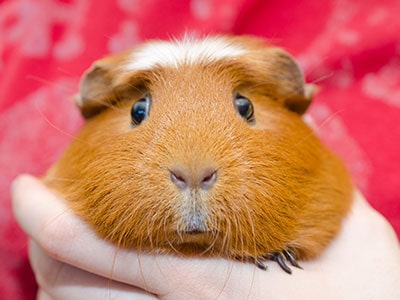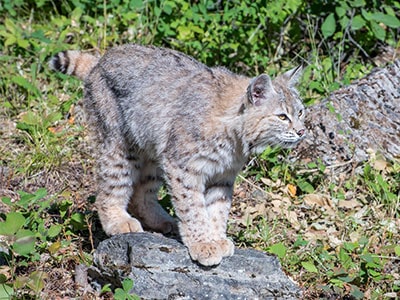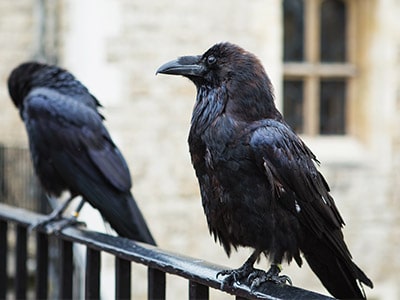Can you keep honey badgers as pets, and would these mammals make good family pets? Let's find out.
Many people want to know if honey badgers can be good family pets and this article will outline many different facts and information about these amazing animals so you can make that decision for yourself!
Honey badgers are rare and interesting animals, native to Namibia and South Africa. The scientific name of these creatures is Mellivora Capensis, which means honey eater of the cape. The "cape" is in reference to the Cape of Good Hope in South Africa, where these animals were first discovered. They are also known as "ratels" and are related to skunks, ferrets, otters, and other species of badgers.
Interesting enough, there is not a lot of information on the lifespan of honey badgers, but sources have stated that they can live from 25-26 years in captivity. In their wild environment, they are known to live from 7-8 years long.
Honey badgers are the perfect example of the expression "appearances can be deceiving." Although they are relatively small in size, they look harmless when viewed from a distance, and may look like the perfect pet for cuddles, the reality is quite the opposite.
Honey Badgers Behavior
In the rural locations of South Africa, Kenya, Namibia, and Zimbabwe, honey badgers are known to regularly raid refuse bins and certain campsites as they look for a quick meal.
They are also very solitary creatures. They prefer to live in solitude and they will only usually congregate if it is a popular area where food is abundant. They have no permanent shelters and they will dig a hole and stay for a day or two, and look for another home after a few days in their natural habitat.
During the summer months, you will notice that the honey badgers are nocturnal during the summer months and diurnal during the winter times of the year.
Honey Badgers Diet
Honey badgers are mostly carnivores, which means their diet consists predominantly of meat. Yet, some classify them as omnivorous because they rarely supplement their diet with fruits, plant roots, and bulbs. They will eat almost anything and are unstoppable when it comes to eating.
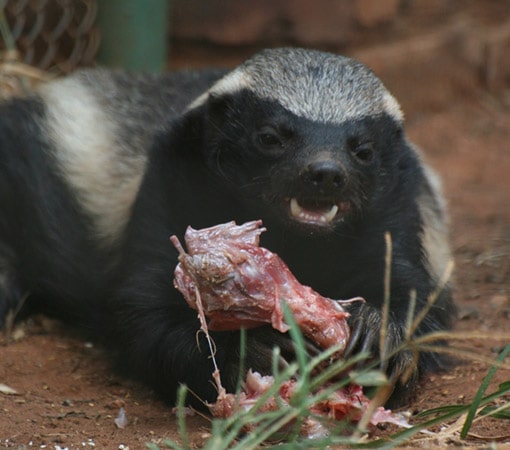
The honey badger is known as being an animal that will attack and consume almost any animal or insect, or even reptile. They are known to eat worms, scorpions, porcupines, tortoises, and other creatures.
Despite its harmless look and relatively small size, the honey badger is completely fearless and will even attack animals much larger than itself including buffalo and antelope.
Honey badgers are even known to fight large animals of prey such as lions or leopards, and they can even attack people.
When attacking large animals, honey badgers will first hurt their prey and then will leave the victim to die from blood loss before dining on the carcass.
It is very interesting to know that honey badgers also attack snakes, starting from large pythons and up to the most vicious and venomous ones in existence! They can eat an entire snake as long as five feet long in as fast as 15 minutes. A honey badger will kill a snake by grabbing it behind the head. This creature will also kill other animals such as hares, tortoises, and even crocodiles that are up to a meter in length. They have a dangerous side and are known for being proficient predators.
These details should already raise some concerns and might already strongly indicate that a honey badger may not be a suitable family pet. Still, let's continue.
Defense And Weapons
Physically, the honey badger is known for having very thick and rubbery skin that is tough and loose. It helps make them resistant to bites from other creatures. They can also twist around which allows them to react and defend against predators.
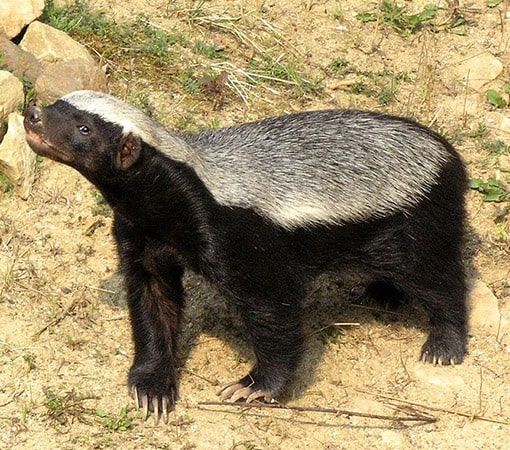
Another aspect of the honey badger is that they do not have ears that stand out. These are tiny and pretty much covered with fur. This particularity helps them in confrontations with other animals because it is a weak point less.
Similar to skunks, honey badgers also excrete scents from their anal glands as a natural defense mechanism. They also do this to fumigate bees and drive them away from protecting their hives. A honey badger is known for loving to attack beehives and eat all the honey and larvae that they find within.
Their loose and tough skin protect them from the remaining bees that are not chased off by the fumigated odors from the anal glands. They will attack beehives viciously and are known to rip them entirely apart with their feet and front paws. They will tear it apart and effectively consume the honey, thereby destroying the hive.
While honey badgers have a solid defense mechanism, they also have powerful natural weapons. They have sharp teeth and incredibly powerful jaws that can crush bones. Additionally, these mammals possess long and strong claws that are very handy in fights.
Honey Badgers As Pets
Honey badgers are not known for being cuddly or cute animals but some people may choose to own one as a pet. They are different and may encourage conversation, but ultimately they have a lot of needs and requirements to keep them happy and healthy.
Obviously, it should be noted by now, that having a honey badger as a family pet is clearly not a very good idea, and doing so presents a high-risk for any person. They are also known to attack human beings and will attack other house pets as well. We will go further into these details as we progress through this description of the savage honey badger animal.
Honey badgers are not as sweet and good-natured as their name implies but they are a very unique animal that you can find in different areas. If you want them as a pet, is entirely up to you. Now that you are prepared with this information, you have more details and facts to work with.
Can You Legally Keep Honey Badgers As Pets?
Since these wild mammals are not traditional house pets, and you may also have to look into local government laws in owning a honey badger as a pet in your residence. While the regulations may vary from one country and from one state to another, in many states of the US, there are laws that prevent you from legally keeping wild animals as pets without a special permit.
If some regions do not allow you to own dogs of breeds considered dangerous, such as pit bulls, in the case of honey badgers, considered exotic, wild, and dangerous animals, it will be even harder for you to obtain this right to legally keep them as pets.
Can Honey Badgers Be Domesticated?
They are not social animals, they do not like to be held, are not playful, and they do not like to cuddle. Plus, they behave very aggressively most of the time.
Over time, honey badgers have earned a very strong reputation, and that certainly is not for being good pets, but quite the contrary. They are known as the most fearless animal on the entire Earth for a reason.
These animals simply don't seem to know fear and they do not shy away from displaying tremendous aggression toward any opponent, regardless of its size. This proactive behavior is most of the time followed by a terrible bite that can produce serious damage even to large animals.
Besides, honey badgers are predominantly carnivorous. They are skilled hunters with sharp predatory instincts and will not step aside to attack any creatures when they are hungry, when scared, or taken by surprise.
Just the fact that they have loose skin, gives them the ability to escape predators trying to get a hold of them or attack them physically. These ferocious little creatures are well known for attacking humans and have also been known to bravely assault vehicles for no particular reason either. These animals are best to be left alone in their natural environment.
It has been reported that during a recent study in Scientific American magazine it was found that honey badgers are the world's most fearsome land mammal because of their outstanding claw to body ratio and extreme aggressive behavioral tendencies. Hence, it is not advised that a person choose a honey badger as a family pet.
They are incredibly vicious and can cause serious injuries to people or other pets. You would have to be a private collector or a person who is interested in honey badgers to get one.
Honey badgers do not make good family pets and we think this article has clearly explained why.
Do you still want a pet honey badger? Watch the following video and you might change your mind once and for all.

